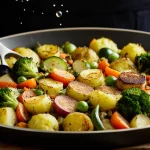Essential Energy Efficiency Strategies for UK Homes
Improving energy efficiency in UK homes begins with assessing the current insulation. UK property types vary widely—from solid wall houses to cavity wall constructions—each requiring tailored insulation solutions. Solid walls often benefit from internal or external insulating panels, while cavity walls may need injected insulation. Effective insulation solutions drastically reduce heat loss, which is the primary cause of high energy consumption in many UK homes.
Upgrading to energy-efficient lighting and appliances is another key strategy. The UK promotes standards such as LED bulbs and A++ rated appliances, which use significantly less power than older models and reduce overall energy use. Being mindful of electrical consumption through these upgrades supports sustainable home practices economically and environmentally.
Also to discover : How Does Natural Lighting Influence Your Home’s Atmosphere?
Homeowners can leverage UK government grants and incentives like the Energy Company Obligation (ECO) scheme, which helps offset costs for insulation and boiler upgrades. These financial supports encourage more property owners to adopt sustainable home practices, easing the upfront expenditure while enhancing long-term energy savings and UK-wide carbon reduction goals.
Practical Waste Reduction and Recycling Measures
Supporting sustainable living through effective waste practices
Also to see : What Are the Top Tips for Designing a Home Office in the UK?
Reducing waste is a vital aspect of sustainable living in the UK. Waste reduction UK strategies start with responsible sorting at home, separating recyclables such as plastics, paper, glass, and metals according to local council guidelines. Understanding your area’s home recycling services ensures materials are properly processed, minimizing landfill contributions.
Composting is an effective method to manage organic waste and enhance sustainability. Setting up a home composting bin can divert food scraps and garden waste from disposal. The decomposition process transforms this into nutrient-rich soil, fostering a circular approach to waste.
Adopting a zero waste mindset entails actively choosing products with minimal packaging or reusable containers. In the UK, many consumers switch to refill stations and ethical brands to curb plastic pollution. These combined efforts not only reduce landfill load but also encourage community-wide engagement in waste reduction UK initiatives, making sustainable living a practical daily habit.
Essential Energy Efficiency Strategies for UK Homes
Effective ways to reduce energy consumption and enhance comfort
Assessing insulation solutions begins with identifying your UK home type. For solid walls, internal or external insulation panels are effective, while cavity walls benefit from injected insulation to seal gaps and reduce heat loss. Proper insulation reduces heating demand, a major factor in reducing energy use.
Upgrading lighting to LED bulbs and appliances to A++ rated models offers considerable energy savings. These comply with UK efficiency standards and cut electricity bills while lowering environmental impact. For example, replacing old halogen bulbs with LEDs can reduce lighting energy by up to 80%.
Homeowners should also explore energy efficiency UK homes grants like the Energy Company Obligation. Such schemes subsidize costs for insulation or boiler upgrades, lessening financial barriers. Applying for these grants supports sustainable home practices and accelerates improvements without high upfront expenses, making energy efficiency both practical and affordable.
Essential Energy Efficiency Strategies for UK Homes
Effective ways to reduce energy consumption and enhance comfort
Assessing insulation solutions tailored to UK property types is fundamental for reducing energy use. Solid wall homes benefit most from internal or external insulating panels that trap heat effectively. Cavity wall properties require injected insulation to fill gaps and minimize heat loss. Choosing the right insulation depends on building age and construction style, impacting home warmth and efficiency.
Upgrading to energy-efficient lighting and appliances is crucial. The UK standards promote LED bulbs and A++ rated appliances, which can cut electricity demand significantly. For example, LEDs consume up to 80% less energy than traditional bulbs, providing immediate energy and cost savings. This transition supports sustainable home practices by lowering monthly bills and environmental impact.
Finally, homeowners should leverage energy efficiency UK homes grants. Schemes like the ECO program offset installation costs for insulation or boilers, removing financial barriers to upgrades. Applying for these incentives encourages wider adoption of energy-saving measures, making home improvements more affordable and accelerating the move toward sustainable living in the UK.
Essential Energy Efficiency Strategies for UK Homes
Effective ways to reduce energy consumption and enhance comfort
Assessing insulation solutions is vital for improving energy efficiency UK homes. The assessment begins with identifying the property’s construction type. Solid walls benefit from installing internal or external insulation panels that trap warm air, significantly reducing heat loss. For cavity wall homes, injected insulation fills the gaps, preventing drafts and enhancing thermal retention. Implementing the correct insulation solutions tailored to the UK property type effectively lowers heating demand, directly reducing energy use.
Upgrading to energy-efficient lighting and appliances is another impactful strategy. The UK supports standards such as LED bulbs and A++ rated appliances, which consume much less power than older alternatives. For example, replacing incandescent lights with LEDs can cut lighting energy by approximately 80%, thus saving both costs and emissions. These improvements align with sustainable home practices by maintaining comfort while lowering electricity consumption.
Homeowners are encouraged to take advantage of UK government grants focused on home energy improvements. Schemes like the Energy Company Obligation provide financial aid for insulation or boiler upgrades, making these essential investments more affordable. Leveraging such incentives accelerates adoption of energy-efficient measures across households, fostering widespread progress in reducing national carbon footprints.
Essential Energy Efficiency Strategies for UK Homes
Effective ways to reduce energy consumption and enhance comfort
Understanding how to assess insulation solutions for diverse UK property types is key to improving energy efficiency UK homes. Solid wall properties generally require internal or external insulating panels to retain heat effectively. Conversely, cavity wall homes benefit most from injected insulation that fills the gap, reducing drafts and heat loss. Accurate assessment involves identifying your home’s construction type and thermal performance, often aided by professional surveys or thermal imaging, to choose the optimal insulation approach.
Upgrading lighting and appliances to meet UK energy standards plays a major role in reducing energy use. LEDs and A++ rated appliances consume significantly less electricity than older models, directly cutting household energy bills and carbon footprints. For example, switching to LED bulbs may lower lighting energy consumption by around 80%.
Homeowners should also explore UK government grants and incentives designed to promote sustainable home practices. Programs like the Energy Company Obligation help fund insulation and boiler upgrades, easing the cost burden. Utilizing these incentives accelerates the adoption of energy-efficient technologies, making sustainable living accessible and financially viable across the UK.










